
Drax donates to Christmas toy drives in Mississippi and Alabama



Funds donated to the British Columbia Floods and Extreme Weather Appeal will be used for immediate and ongoing relief efforts, long-term recovery, resilience and preparedness for future events in the province and impacted regions.
Drax’s contribution will be tripled as both the Government of Canada and the Province of BC have committed to match every dollar donated to the Canadian Red Cross to support those affected by the disaster.
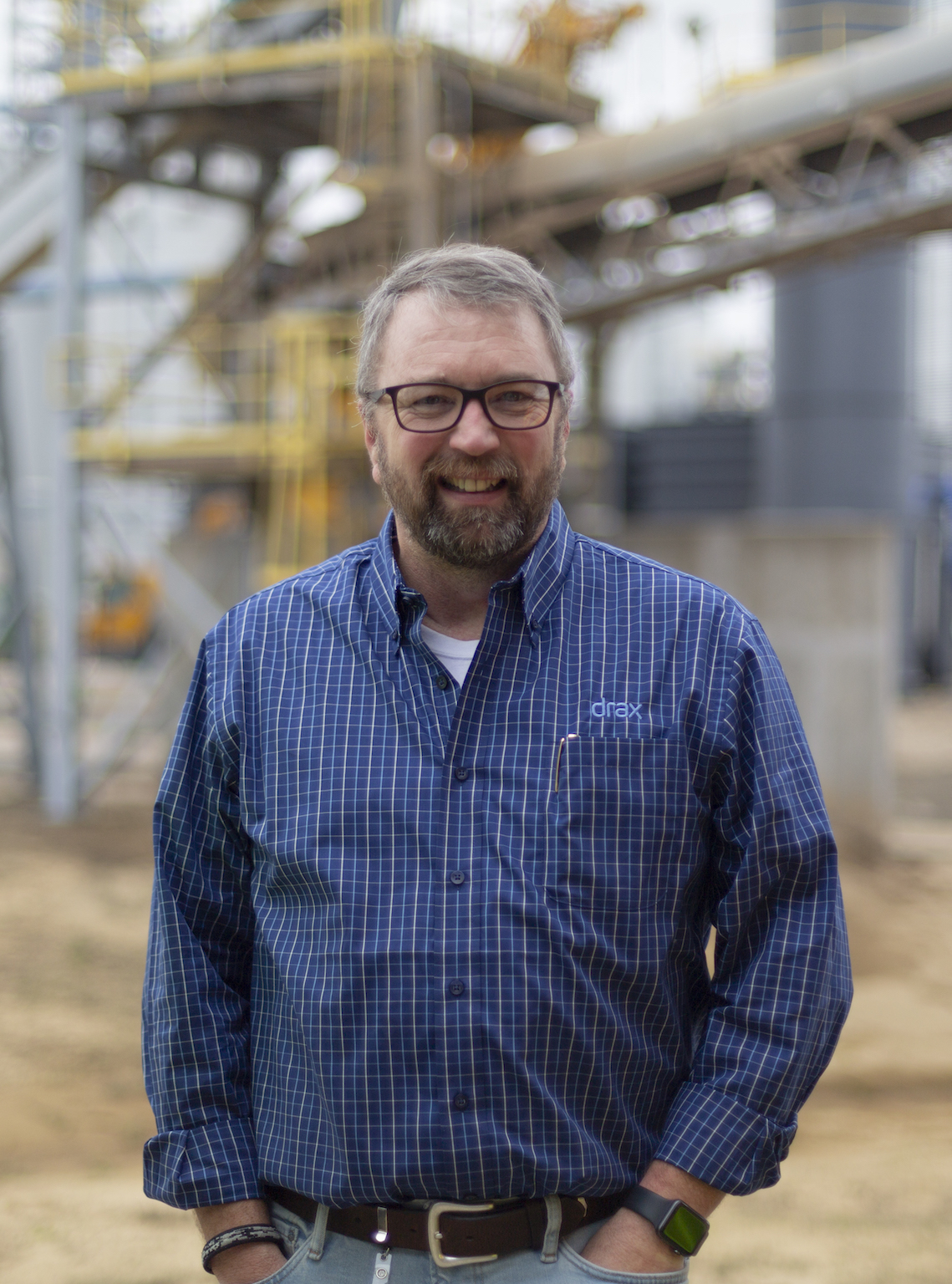
Matt White, Executive Vice President of Drax’s Pellet Operations
“This past year has been very challenging for folks in British Columbia – first the continuing Covid pandemic, then the wildfires and now the floods that have devastated the lives and homes of many people.
“We believe it’s important to support the people who live in the areas where we operate, and we hope this donation helps British Columbians take the first steps towards repairing their lives and rebuilding their communities.”
Seventeen regional districts were affected by the November floods, mudslides and landslides including southern Vancouver Island, the South Coast, parts of the Interior and the Kootenay Region where thousands of homes were damaged and many people are still unable to return home.
Road and rail infrastructure was also damaged and could take months to repair.
In April, British energy company Drax acquired Pinnacle Renewable Energy Inc – a major producer of biomass pellets with operations across BC and Alberta in Canada and Alabama in the US.
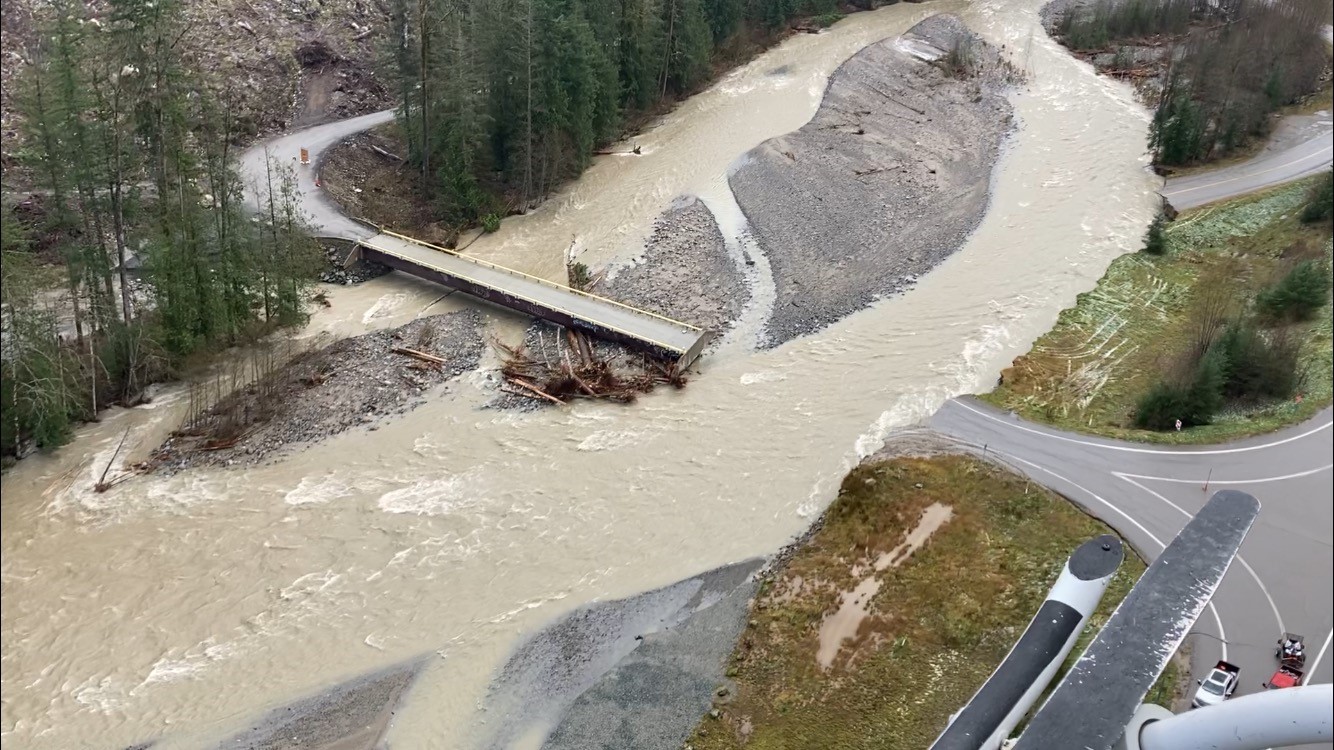
Mudslides took out large portions of the Coquihalla Highway, a major highway in British Columbia, in more than 20 sites, totaling 130 km of damage. [Photo Credit: BC Ministry of Transportation & Infrastructure]
“Thanks to the generosity of Canadians, Red Cross is able to support the immediate and ongoing relief and recovery efforts for people impacted by these devastating floods. The road to recovery will be long for many people, and Drax’s contribution will make a difference in ensuring our teams can support them as they recover from this disaster.”
Officials expect this extreme weather event to be the costliest natural disaster in Canadian history. The Canadian Red Cross is working alongside First Nations and provincial, local and governments to support individuals, families and communities impacted by extreme weather events in B.C.
To make a donation to the British Columbia Floods and Extreme Weather Appeal:
ENDS
Karen Brandt
[email protected]
250 510 0545
Drax Group’s purpose is to enable a zero carbon, lower cost energy future and in 2019 announced a world-leading ambition to be carbon negative by 2030, using Bioenergy with Carbon Capture and Storage (BECCS) technology.
Its 3,400 employees operate across three principal areas of activity – electricity generation, electricity sales to business customers and compressed wood pellet production and supply to third parties.
For more information visit www.drax.com
Drax owns and operates a portfolio of renewable electricity generation assets in England and Scotland. The assets include the UK’s largest power station, based at Selby, North Yorkshire, which supplies five percent of the country’s electricity needs.
Having converted Drax Power Station to use sustainable biomass instead of coal it has become the UK’s biggest renewable power generator and the largest decarbonisation project in Europe. It is also where Drax is piloting the groundbreaking negative emissions technology BECCS within its CCUS (Carbon Capture Utilisation and Storage) Incubation Area.
Its pumped storage, hydro and energy from waste assets in Scotland include Cruachan Power Station – a flexible pumped storage facility within the hollowed-out mountain Ben Cruachan.
Drax owns and has interests in 17 pellet mills in the US South and Western Canada which have the capacity to manufacture 4.9 million tonnes of compressed wood pellets (biomass) a year. The pellets are produced using materials sourced from sustainably managed working forests and are supplied to third party customers in Europe and Asia for the generation of renewable power.
Drax’s pellet mills supply around 30% of the biomass used at its own power station in North Yorkshire, England to generate flexible, renewable power for the UK’s homes and businesses.
Drax is the largest supplier of renewable electricity to UK businesses, supplying 100% renewable electricity as standard to more than 370,000 sites through Drax and Opus Energy.
It offers a range of energy-related services including energy optimisation, as well as electric vehicle strategy and management.
To find out more go to the website www.energy.drax.com

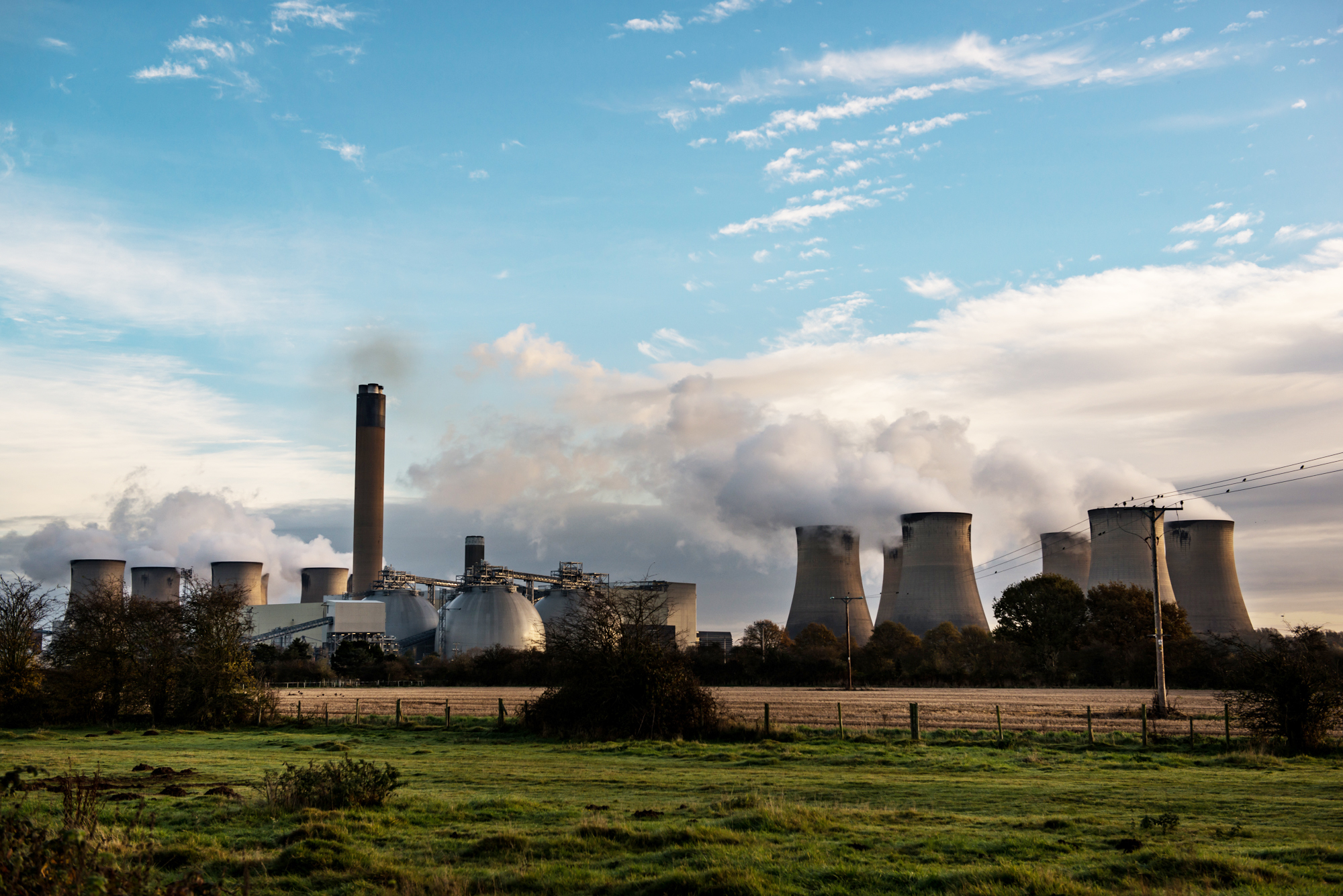
As part of this investment, Drax has selected Worley to begin the Front-End Engineering and Design (FEED) work at the start of 2022 and may also work with the company on the subsequent design and build phases of the BECCS project, subject to contract. Drax will also commence site preparation works for BECCS across its North Yorkshire power station including relocation and decommissioning work to make space for the project.
Worley, a global provider of professional project and asset services delivers engineering, procurement and construction, as well as consulting services for the energy, chemicals and resources sectors around the world.
BECCS is seen as an essential technology to tackle climate change with the project at Drax set to capture and permanently lock away at least eight million tonnes of CO2 a year, exceeding the government’s ambition to deliver 5Mt of negative emissions from engineered removals each year by 2030 as outlined in the recently published Net Zero Strategy.
Drax is already the largest decarbonisation project in Europe, having converted its power station to use sustainable biomass instead of coal, reducing its emissions by more than 90%. By deploying BECCS technology, Drax will create and protect tens of thousands of jobs across the North, kickstart new green industries, and make the UK a global leader in negative emissions technologies.

Drax Group CEO, Will Gardiner
“Our investment in BECCS and the signing of this contract with Worley demonstrates Drax’s commitment to deliver a vital technology which is urgently needed to address the climate crisis. It’s no longer enough to reduce emissions – the world has got to start removing carbon from the atmosphere if we are to avert this climate crisis.
“The Government’s ambition for BECCS and its backing for the East Coast Cluster further demonstrates the vital role this negative emissions technology at Drax can play in helping the UK reach its net zero targets, as well as creating and protecting thousands of jobs and kickstarting a new green economy.”

Worley CEO, Chris Ashton
“As a global professional services company headquartered in Australia, we are pleased that Drax has engaged Worley in this important carbon capture project. Our partnership with Drax is one of the ways we’re helping our customers adapt existing assets and decarbonize industrial clusters, whilst also supporting Worley’s strategic focus on sustainability and delivering a more sustainable world.”
The announcement follows Drax’s decision in the Summer to partner with Mitsubishi Heavy Industries (MHI) Group as its technology partner. As well as this the company outlined its ambition to source 80% of the construction materials and services from UK supply chain, meaning businesses could benefit from contracts worth hundreds of millions of pounds, creating and protecting jobs across the North and levelling up the country.
With an effective negative emissions policy and investment framework from the government, BECCS could be deployed at Drax as soon as 2027 – delivering the UK’s largest carbon capture project and permanently removing millions of tonnes of carbon dioxide from the atmosphere each year.
Drax has already kickstarted the planning process to deploy BECCS at its power station in North Yorkshire – if successful, work could get underway to build BECCS at Drax as soon as 2024, with the creation of thousands of jobs.
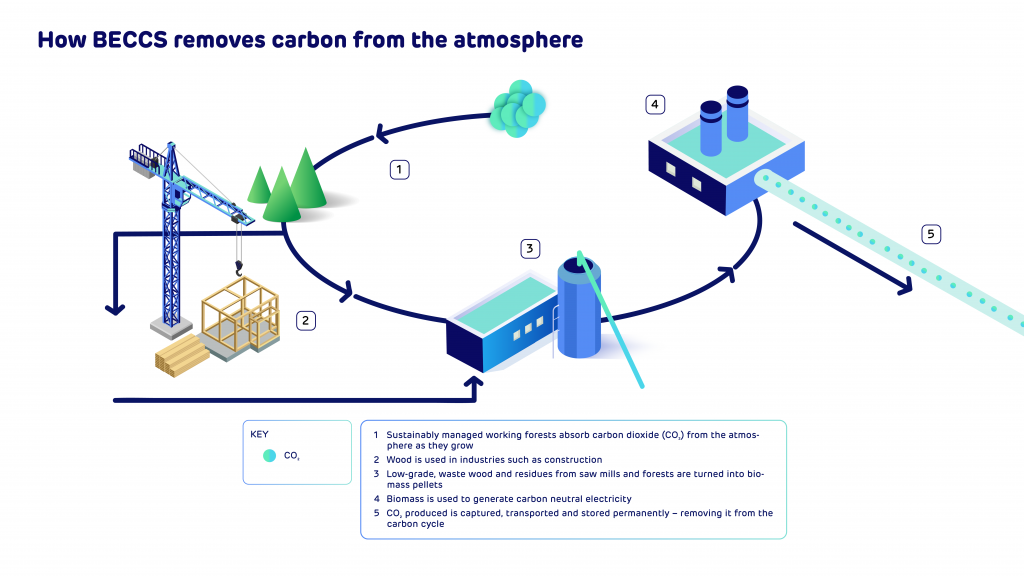
How BECCS at Drax will work. Click to view/download.
An accompanying RNS to the London Stock Exchange can be read here: https://www.londonstockexchange.com/news-article/DRX/investment-in-beccs-feed-study/15251148
ENDS
Ali Lewis
Head of Media & PR
E: [email protected]
T: 07712 670 888
Aidan Kerr
Media Manager
E: [email protected]
T: 07849090368
Drax Group’s purpose is to enable a zero carbon, lower cost energy future and in 2019 announced a world-leading ambition to be carbon negative by 2030, using Bioenergy with Carbon Capture and Storage (BECCS) technology.
Its 3,400 employees operate across three principal areas of activity – electricity generation, electricity sales to business customers and compressed wood pellet production and supply to third parties. For more information visit www.drax.com
Drax owns and operates a portfolio of renewable electricity generation assets in England and Scotland. The assets include the UK’s largest power station, based at Selby, North Yorkshire, which supplies five percent of the country’s electricity needs.
Having converted Drax Power Station to use sustainable biomass instead of coal it has become the UK’s biggest renewable power generator and the largest decarbonisation project in Europe. It is also where Drax is piloting the groundbreaking negative emissions technology BECCS within its CCUS (Carbon Capture Utilisation and Storage) Incubation Area.
Its pumped storage, hydro and energy from waste assets in Scotland include Cruachan Power Station – a flexible pumped storage facility within the hollowed-out mountain Ben Cruachan.
The Group also aims to build on its BECCS innovation at Drax Power Station with a target to deliver 4Mt of negative CO2 emissions each year from new-build BECCS outside of the UK by 2030 and is currently developing models for North American and European markets.
The Group has 13 operational pellet plants with nameplate capacity of c.4Mt, plus a further two plants currently commissioning and other developments/expansions which will increase this to c.5Mt once complete.
Drax is targeting 8Mt of production capacity by 2030, which will require the development of over 3Mt of new biomass pellet production capacity. The pellets are produced using materials sourced from sustainably managed working forests and are supplied to third party customers in Europe and Asia for the generation of renewable power.
Drax’s pellet mills supply around 30% of the biomass used at its own power station in North Yorkshire, England to generate flexible, renewable power for the UK’s homes and businesses.
Drax is the largest supplier of renewable electricity to UK businesses, supplying 100% renewable electricity as standard to more than 370,000 sites through Drax and Opus Energy.
It offers a range of energy-related services including energy optimisation, as well as electric vehicle strategy and management.
To find out more go to the website www.energy.drax.com
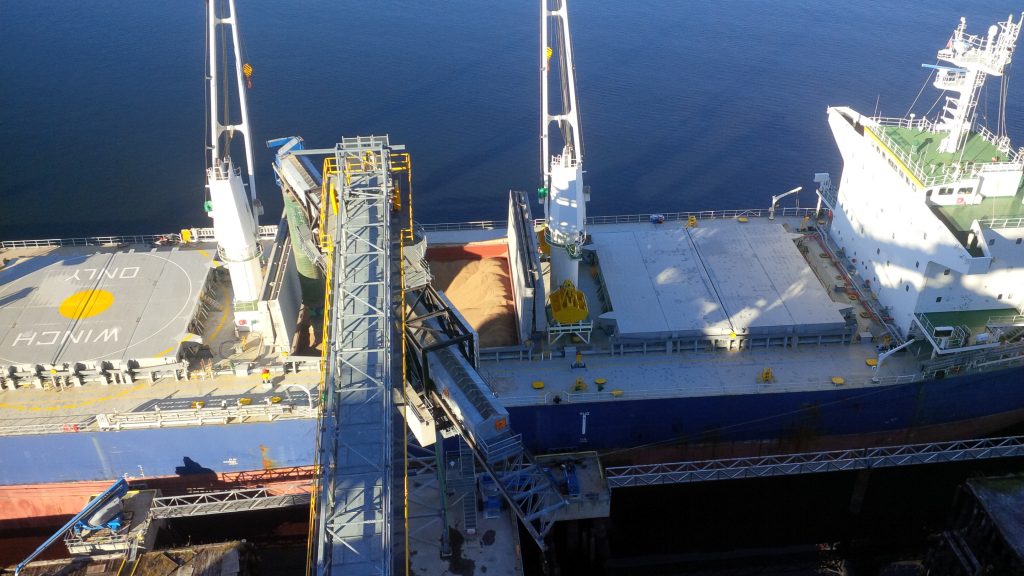
These contracts are for delivery between 2022 and the mid-2030s, of which 0.3Mt is for delivery in 2022. The total incremental revenues over the contract period are around C$675 million.
The deal complements the Group’s existing supply contracts to Asian counterparties and European generators, increasing the Group’s long-term third-party sales book by 15%, to around 23Mt, with total revenues of over US$4.5 billion.

Drax Group CEO Will Gardiner
“This deal supports Drax’s ambition to double our sales of sustainable biomass by 2030 to markets in Asia and Europe where demand for biomass is increasing as countries transition away from coal. It also demonstrates Drax’s commitment to the growth of sustainable biomass in Japan specifically, where we expect to establish a new office in 2022.
“We look forward to working with our partners in Japan and other markets across Asia and Europe as part of our aim to be a global leader in sustainable biomass, making an even greater contribution to the world’s efforts to reach net zero.”
Drax aims to double sales of biomass to third parties to at least 4Mt pa by 2030, developing its market presence in Asia and Europe, facilitated by the creation of new business development teams in Tokyo and London during 2022.
Drax is a major producer, supplier and user of biomass, active in all areas of the supply chain with long-term relationships and almost 20 years of experience in biomass operations. The Group’s innovation in coal-to-biomass engineering, supply chain management and leadership in negative emissions can be deployed alongside its large, reliable and sustainable supply chain to support customer decarbonisation journeys with long-term partnerships.
Drax Investor Relations: Mark Strafford
+44 (0) 7730 763 949
Drax External Communications: Ali Lewis
+44 (0) 7712 670 888
Website: www.drax.com
END

The team led a series of presentations adapted to suit the different age groups in the school with sessions including virtual tours of Drax Power Station in North Yorkshire and Drax’s hydroelectricity facilities in Scotland and an activity lesson where the children replicated the water filtration process that takes place at the Drax Daldowie energy from waste facility.
The children also received a visit from one of Daldowie’s technical apprentices Danielle Nicholson who talked about her role at the fuel plant and what skills are needed, to show the children some of the career options available in the energy sector.
“I really enjoyed learning about how the water is filtered and used to make renewable energy and the quiz was really fun.”

Luke (Primary 2) and Charlie (Primary 1)
“The children really enjoyed the workshop with Drax. Experiences like these are so important to get them excited about learning and bring the subject to life. The topic was particularly relevant with COP26 taking place just down the road too.”
The Drax Visitor Centre Team has been running virtual workshops in schools, colleges and universities local to the company’s operations ever since the start of the covid-19 pandemic to ensure that students didn’t miss out on the opportunities that the company would usually offer.

Boaz (Primary 1) and Maxwell (Primary 2)
“We’re committed to supporting education in the communities local to our operations. I hope that sessions such as these will help pupils better understand how energy is generated and inspire an interest in STEM subjects.”
Drax runs a number of initiatives to support STEM education including a virtual work experience programme, a STEM box project and virtual tours of the power station.
Top image caption: Emma (Primary 5) and Hannah (Primary 4)
ENDS
Megan Hopgood
Communications Officer
E: [email protected]
T: 07936 350 175
Drax Group’s purpose is to enable a zero carbon, lower cost energy future and in 2019 announced a world-leading ambition to be carbon negative by 2030, using Bioenergy with Carbon Capture and Storage (BECCS) technology.
Its 3,400 employees operate across three principal areas of activity – electricity generation, electricity sales to business customers and compressed wood pellet production and supply to third parties.
For more information visit www.drax.com
Drax owns and operates a portfolio of renewable electricity generation assets in England and Scotland. The assets include the UK’s largest power station, based at Selby, North Yorkshire, which supplies five percent of the country’s electricity needs.
Having converted Drax Power Station to use sustainable biomass instead of coal it has become the UK’s biggest renewable power generator and the largest decarbonisation project in Europe. It is also where Drax is piloting the groundbreaking negative emissions technology BECCS within its CCUS (Carbon Capture Utilisation and Storage) Incubation Area.
Its pumped storage, hydro and energy from waste assets in Scotland include Cruachan Power Station – a flexible pumped storage facility within the hollowed-out mountain Ben Cruachan.
Drax owns and has interests in 17 pellet mills in the US South and Western Canada which have the capacity to manufacture 4.9 million tonnes of compressed wood pellets (biomass) a year. The pellets are produced using materials sourced from sustainably managed working forests and are supplied to third party customers in Europe and Asia for the generation of renewable power.
Drax’s pellet mills supply around 30% of the biomass used at its own power station in North Yorkshire, England to generate flexible, renewable power for the UK’s homes and businesses.
Drax is the largest supplier of renewable electricity to UK businesses, supplying 100% renewable electricity as standard to more than 370,000 sites through Drax and Opus Energy.
It offers a range of energy-related services including energy optimisation, as well as electric vehicle strategy and management.
To find out more go to the website www.energy.drax.com

Cruachan is an underground pumped hydro storage power station built in a hollowed-out cavern 1km inside Ben Cruachan – Argyll’s highest mountain. Constructed in 1965, its reversible turbines are still at the cutting edge of energy storage technology, enabling the plant to act like a giant water battery.
Its turbines pump water from Loch Awe to an upper reservoir on the mountainside to store excess power from the grid. The stored water is then released back through the turbines to generate power quickly and reliably when demand increases. This process helps stop wind farms being paid to turn off when they are generating excess power, helping Scotland to be greener whilst cutting household energy bills.
Enough wind power to supply a million homes went to waste in the UK in 2020 because there wasn’t enough capacity to ensure this excess renewable power was stored and made available when it was needed.
As part of the visit, Drax Group’s Head of Hydro, Mike Wynd, also outlined the company’s exciting work on plans to build a new second underground pumped hydro storage power station at the Cruachan complex.
“Cruachan plays a critical role in stabilising the electricity system, balancing supply and demand by storing excess power from the national grid. When Scotland’s wind turbines are generating more power than we need, Cruachan steps in to store the renewable electricity so it doesn’t go to waste.
“Drax has exciting plans to more than double Cruachan’s generating capacity, a project that will support new green jobs and help our homes and businesses go greener by bringing more renewable power onto the grid.”
“It was fascinating to learn more about how important this unique power station is in supporting the Scottish energy system and the critical role it plays in keeping the power grid safe and stable.
“This kind of flexibility and resilience helps to support the growth of renewables, enabling further decarbonisation of the energy system as we strive for net zero carbon emissions in Scotland by 2045.”
Drax acquired Cruachan alongside the Galloway and Lanark hydro schemes in 2019, helping to make the company a leading provider of flexible, renewable power generation.
When all four of its generating units are operating at maximum capacity, the plant can supply enough flexible power for around 800,000 homes.
ENDS
Aidan Kerr
Drax Group Media Manager
E: [email protected]
T: 07849090368
Drax Group’s purpose is to enable a zero carbon, lower cost energy future and in 2019 announced a world-leading ambition to be carbon negative by 2030, using Bioenergy with Carbon Capture and Storage (BECCS) technology.
Its 3,400 employees operate across three principal areas of activity – electricity generation, electricity sales to business customers and compressed wood pellet production and supply to third parties.
Drax owns and operates a portfolio of renewable electricity generation assets in England and Scotland. The assets include the UK’s largest power station, based at Selby, North Yorkshire, which supplies five percent of the country’s electricity needs.
Having converted Drax Power Station to use sustainable biomass instead of coal it has become the UK’s biggest renewable power generator and the largest decarbonisation project in Europe. It is also where Drax is piloting the groundbreaking negative emissions technology BECCS within its CCUS (Carbon Capture Utilisation and Storage) Incubation Area.
Its pumped storage, hydro and energy from waste assets in Scotland include Cruachan Power Station – a flexible pumped storage facility within the hollowed-out mountain Ben Cruachan.
Drax owns and has interests in 17 pellet mills in the US South and Western Canada which have the capacity to manufacture 4.9 million tonnes of compressed wood pellets (biomass) a year. The pellets are produced using materials sourced from sustainably managed working forests and are supplied to third party customers in Europe and Asia for the generation of renewable power.
Drax’s pellet mills supply around 30% of the biomass used at its own power station in North Yorkshire, England to generate flexible, renewable power for the UK’s homes and businesses.
Through its two B2B energy supply brands, Haven Power and Opus Energy, Drax supplies energy to 250,000 businesses across Britain.
For more information visit www.drax.com
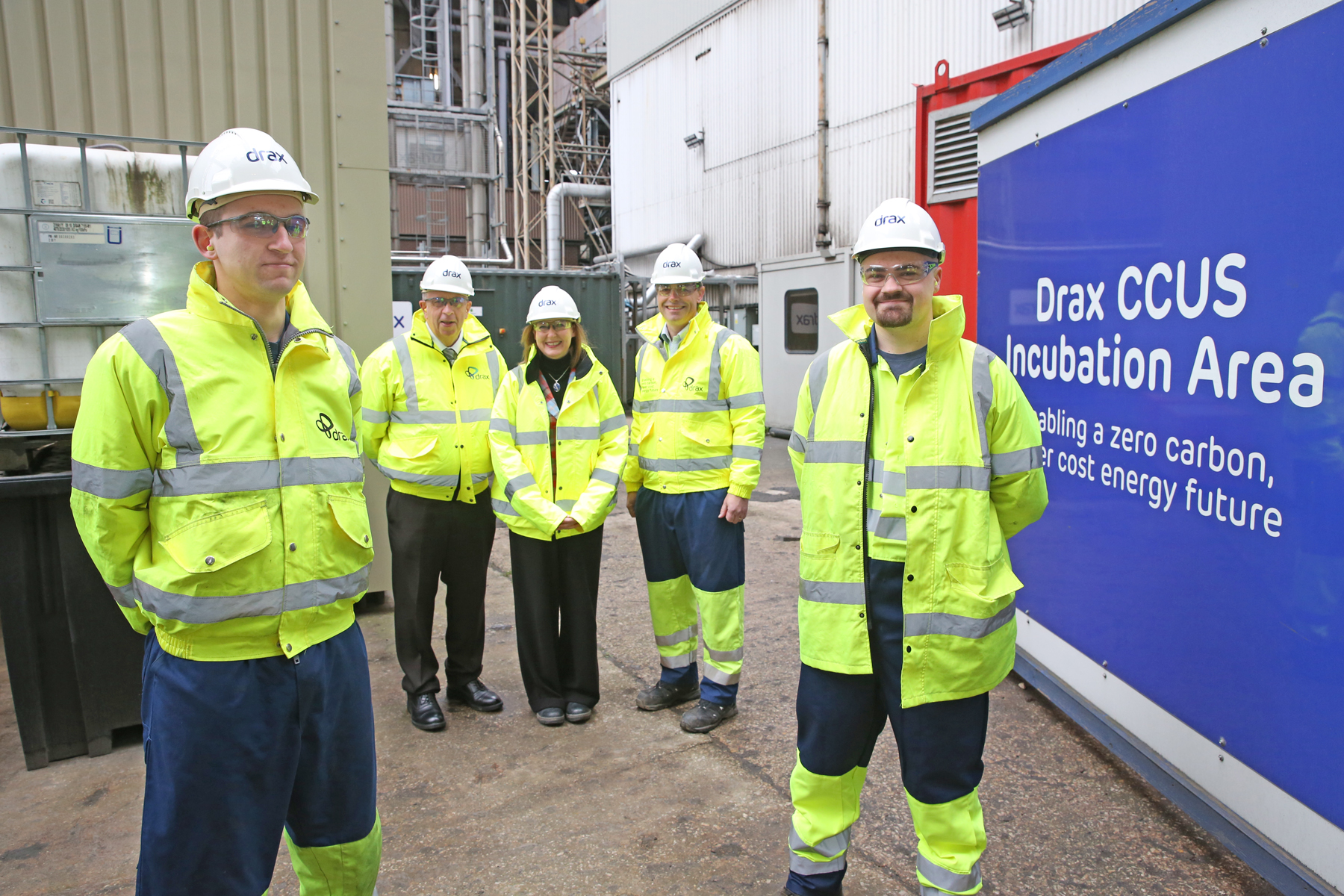
The £272,000 grant, from the Department for Education’s Strategic Development Fund, will allow the College to develop a brand-new training course in carbon capture and storage technologies, supporting Drax’s plans to develop the vital negative emission technology BECCS at its power station near Selby.
The course will start next year and will equip both current and future Drax employees with the vital skills needed to operate this critical negative emissions technology, ensuring the region is at the forefront of the green industrial revolution.
The programme will also be available to other organisations and individuals interested in developing their knowledge and understanding about carbon capture and storage. The course is being designed as an introduction to the subject, with the aim of adding more modules and units over time.
“Selby College is committed to supporting businesses and industries to develop specific training programmes that support their current and future workforce development. Our ongoing partnership with Drax has enabled us to secure this funding to create tailored education plans that will equip its workforce and supply chain with the skills needed as we transition into a zero-emission future.”
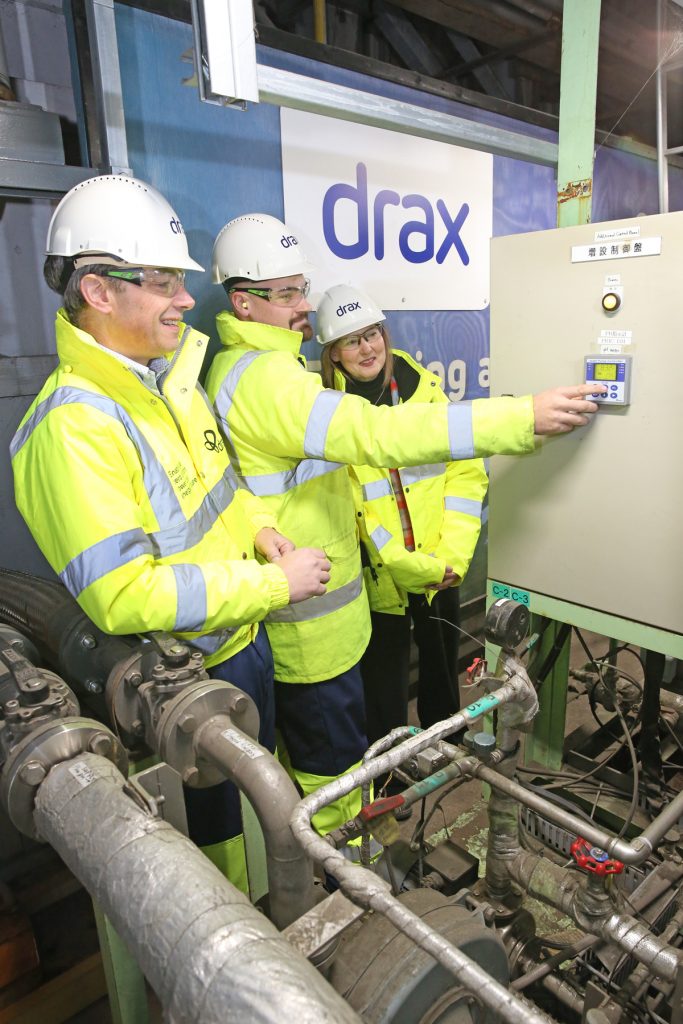
Bruce Heppenstall Drax Plant Director, Lewis Marron, Drax 4th Year Apprentice, and Liz Ridley Deputy Principal at Selby College.
“It’s critical businesses like Drax have access to a skilled workforce, with the knowledge and expertise to operate negative emissions technologies that will be vital in enabling the UK to reach its legally binding net zero targets. Through our partnership with Selby College, we are able to futureproof our workforce, ensuring we are at the forefront of the green industrial revolution, creating and protecting thousands of jobs here in the North.
“Deploying BECCS at Drax will not only deliver for the environment, but it will also deliver for the economy. It could kickstart a whole new sector of the economy and be the catalyst for a post-covid economic recovery.”
“It is fantastic to see Selby College working with Drax to offer people the skills they need to progress in green careers in their area.
“Offering people the chance to upskill in the latest in-demand technologies is vital to plug skills gaps in our economy, and ensure we have a workforce fit for the future.”
“Electricity generated by Drax using sustainable biomass is key to expanding the wider economy of Yorkshire and Humberside. The transition from coal to biomass demonstrated how businesses can transform and thrive as part of our new “net zero” economy.
To build on this leadership it is vital that businesses like Drax have the skilled workforce to operate the new green technologies and maintain their leading position. The ongoing partnership between Selby College and Drax will provide the essential facilities and courses for local people to develop their skills, and I look forward to seeing this partnership flourish and feed into the development of clean green industries across our region.”
Through its transition from using coal to sustainable biomass, Drax has safeguarded hundreds of jobs at its power station, as well as more than 6,600 across its supply chain in the North. It aims to go further by building BECCS, with the creation of more than ten thousand jobs at the project’s peak. Its first BECCS unit could be up and running in 2027, delivering the world’s biggest carbon capture project, permanently locking away millions of tonnes of CO2 each year.
The new CCS educational programme builds on a five-year, £180,000 partnership Drax announced with Selby College in 2020, which enabled the College to invest in ICT equipment to support remote learning, as well as state-of-the-art engineering equipment and a series of events on green energy.
ENDS
Drax Media Contact
Ben Wicks
Media Manager
[email protected]
07761 525662
Top image caption: (From L – R) Cameron Shipstone, Drax 4th Year Apprentice, Steve Butler Engineering Manager at Selby College, Liz Ridley Deputy Principal at Selby College, Bruce Heppenstall Drax Plant Director, Lewis Marron, Drax 4th Year Apprentice.
Selby College is a highly rated College in the heart of North Yorkshire, providing education and training opportunities for students aged 16 right up to 70+. Learners from all over Yorkshire and the Humber travel to Selby College because of its reputation for high-quality education.
Providing a wealth of courses and clear progression routes, Selby College offers A Levels, Vocational courses, Apprenticeships, Higher Education, Adult Learning and Professional Courses for Employers.
Established in 1984, the College today employs more than 200 teaching and support staff. Following a £35m investment in its state-of-the-art campus, Selby College boasts some of the most up-to-date facilities of any education provider in the area.
Selby College is also playing a leading role alongside other local institutions in the development of the Yorkshire & Humber Institute of Technology, which is one of twelve of its kind across the country designed to increase higher-level technical skills for employers. The College has also been selected by the Department of Education to deliver its brand-new T Level qualifications from September 2022, which are high-quality technical alternatives to A Levels.
For more information visit www.selby.ac.uk
Drax Group’s purpose is to enable a zero carbon, lower cost energy future and in 2019 announced a world-leading ambition to be carbon negative by 2030, using Bioenergy with Carbon Capture and Storage (BECCS) technology.
Its 3,400 employees operate across three principal areas of activity – electricity generation, electricity sales to business customers and compressed wood pellet production and supply to third parties.
Drax owns and operates a portfolio of renewable electricity generation assets in England and Scotland. The assets include the UK’s largest power station, based at Selby, North Yorkshire, which supplies five percent of the country’s electricity needs.
Having converted Drax Power Station to use sustainable biomass instead of coal it has become the UK’s biggest renewable power generator and the largest decarbonisation project in Europe. It is also where Drax is piloting the groundbreaking negative emissions technology BECCS within its CCUS (Carbon Capture Utilisation and Storage) Incubation Area.
Its pumped storage, hydro and energy from waste assets in Scotland include Cruachan Power Station – a flexible pumped storage facility within the hollowed-out mountain Ben Cruachan.
Drax owns and has interests in 17 pellet mills in the US South and Western Canada which have the capacity to manufacture 4.9 million tonnes of compressed wood pellets (biomass) a year. The pellets are produced using materials sourced from sustainably managed working forests and are supplied to third party customers in Europe and Asia for the generation of renewable power.
Drax’s pellet mills supply around 30% of the biomass used at its own power station in North Yorkshire, England to generate flexible, renewable power for the UK’s homes and businesses.
Through its two B2B energy supply brands, Haven Power and Opus Energy, Drax supplies energy to 250,000 businesses across Britain.
For more information visit www.drax.com
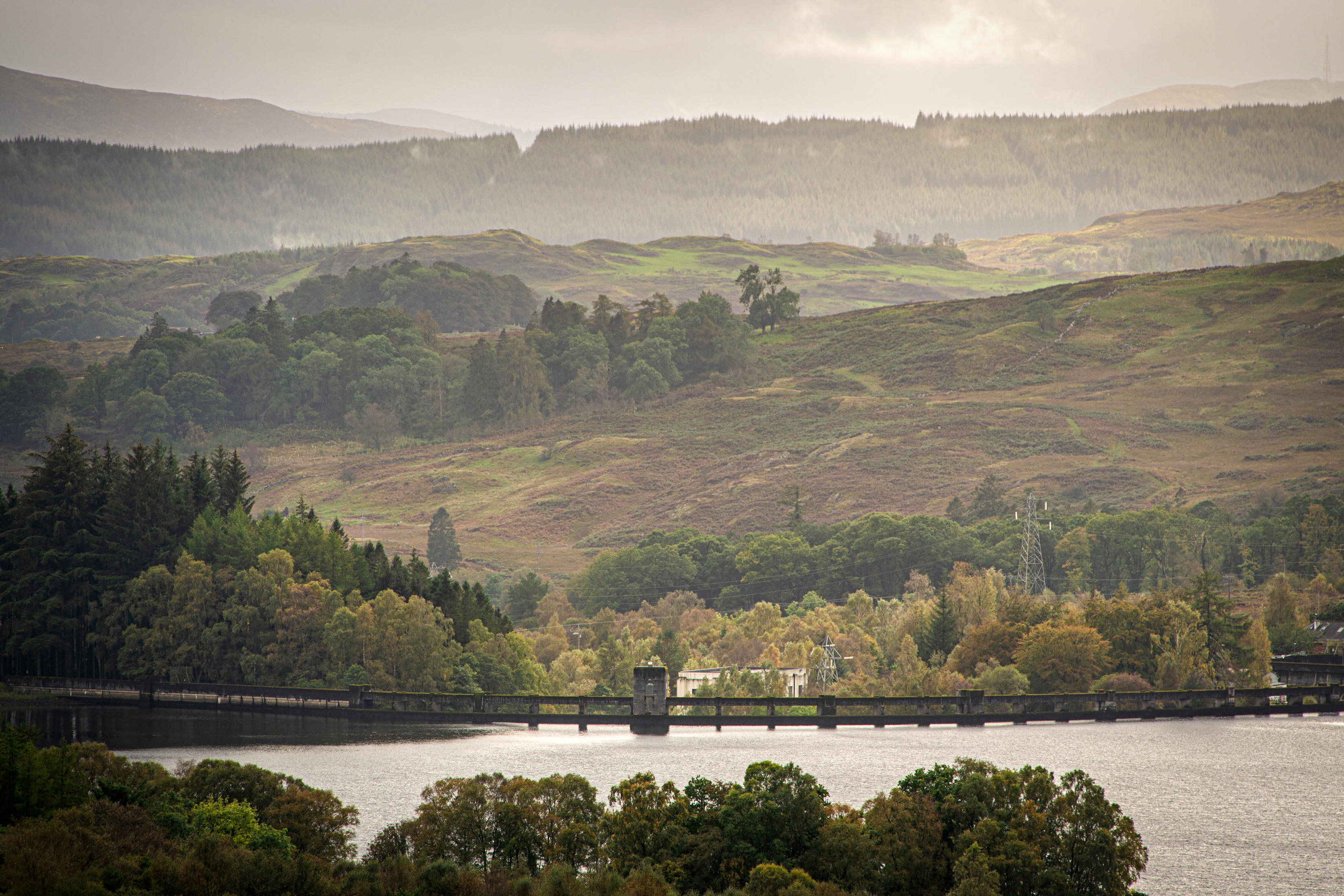
The donation to Whiteley’s Retreat in Alloway near Ayr, which offers holidays and short breaks to children suffering from terminal illnesses and Macmillan Cancer Support, was helped by the employees receiving a cash reward from Drax Group in recognition of their excellent safety record at work.
The teams donated the reward along with the proceeds from a clay pigeon shoot to the charities, with the total raised match funded by Drax.
“Health and safety is Drax’s number one priority and the teams at Galloway and Lanark have had an excellent safety record for 15 years across all of the sites within the hydro schemes. We wanted to acknowledge that with a reward.
“I’m really proud that the team used the reward to do something positive for the local community – continuing Drax’s long tradition of supporting the communities local to its operations.”
“Colleagues wanted to give back to local charities and get together after spending such a long-time social distancing and working from home due to covid restrictions. We thought an outdoor fundraising activity, such as a clay pigeon shoot would be a nice way to do some team building, whilst supporting charities close to the hearts of our team.
“The event coincided with us receiving the award for safe working, and everyone agreed we should donate the money to the charities. We hope it will make a difference and support the incredible work they do.”
“On behalf of the team at Whiteleys and the families we support, we would like to thank the staff at Drax, for their kind and generous donation to Whiteleys Retreat.
“What a great achievement and this kind donation will go towards Whiteleys continuing to be able to provide therapeutic short breaks and extended support for children, young people and their families with cancer and life altering illnesses in the UK.”
Drax is committed to supporting the communities local to its operations. It has invested more than £840,000 to support its customers and local communities since the start of the Covid-19 crisis.
ENDS
Megan Hopgood
Communications Officer
E: [email protected]
T: 07936350175
Drax Group’s purpose is to enable a zero carbon, lower cost energy future and in 2019 announced a world-leading ambition to be carbon negative by 2030, using Bioenergy with Carbon Capture and Storage (BECCS) technology.
Its 3,400 employees operate across three principal areas of activity – electricity generation, electricity sales to business customers and compressed wood pellet production and supply to third parties.
For more information visit www.drax.com
Drax owns and operates a portfolio of renewable electricity generation assets in England and Scotland. The assets include the UK’s largest power station, based at Selby, North Yorkshire, which supplies five percent of the country’s electricity needs.
Having converted Drax Power Station to use sustainable biomass instead of coal it has become the UK’s biggest renewable power generator and the largest decarbonisation project in Europe. It is also where Drax is piloting the groundbreaking negative emissions technology BECCS within its CCUS (Carbon Capture Utilisation and Storage) Incubation Area.
Its pumped storage, hydro and energy from waste assets in Scotland include Cruachan Power Station – a flexible pumped storage facility within the hollowed-out mountain Ben Cruachan.
Drax owns and has interests in 17 pellet mills in the US South and Western Canada which have the capacity to manufacture 4.9 million tonnes of compressed wood pellets (biomass) a year. The pellets are produced using materials sourced from sustainably managed working forests and are supplied to third party customers in Europe and Asia for the generation of renewable power.
Drax’s pellet mills supply around 30% of the biomass used at its own power station in North Yorkshire, England to generate flexible, renewable power for the UK’s homes and businesses.
Drax is the largest supplier of renewable electricity to UK businesses, supplying 100% renewable electricity as standard to more than 370,000 sites through Drax and Opus Energy.
It offers a range of energy-related services including energy optimisation, as well as electric vehicle strategy and management.
To find out more go to the website www.energy.drax.com